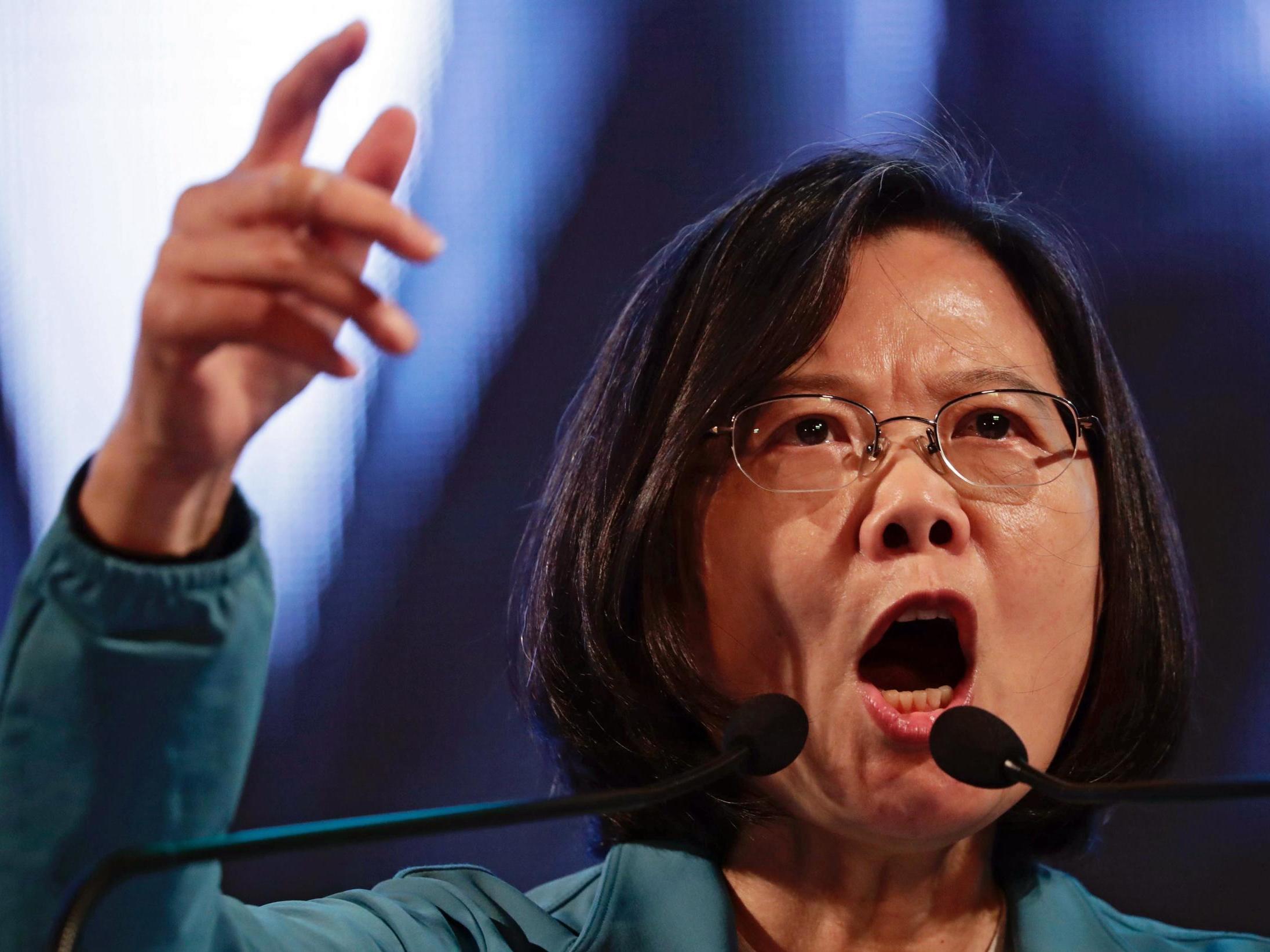Chinese pressure on Taiwan likely to increase after election
Beijing will not be cooperative if Tsai Ing-wen's pro-independence party returns to government

Your support helps us to tell the story
From reproductive rights to climate change to Big Tech, The Independent is on the ground when the story is developing. Whether it's investigating the financials of Elon Musk's pro-Trump PAC or producing our latest documentary, 'The A Word', which shines a light on the American women fighting for reproductive rights, we know how important it is to parse out the facts from the messaging.
At such a critical moment in US history, we need reporters on the ground. Your donation allows us to keep sending journalists to speak to both sides of the story.
The Independent is trusted by Americans across the entire political spectrum. And unlike many other quality news outlets, we choose not to lock Americans out of our reporting and analysis with paywalls. We believe quality journalism should be available to everyone, paid for by those who can afford it.
Your support makes all the difference.Further deadlock and heightened pressure from China is the likely outcome if Taiwan’s independence-leaning president Tsai Ing-wen wins a second term this weekend, as is widely predicted.
Ms Tsai, of the Democratic Progressive Party, was leading by a comfortable margin in most polls before the standard blackout period on surveys was imposed 10 days before Saturday’s election. She and the other two main candidates patrolled city streets appealing for support during the day, as supporters gathered on Friday evening for final campaign rallies.
In the southern city of Kaohsiung, backers of Ms Tsai’s chief opponent, Han Kuo-yu of the opposition Nationalist Party, waved red and blue Taiwan flags, blew horns and chanted their support. Another candidate, James Soong of the smaller People First Party, also planned a rally.
Ms Tsai’s party lost badly in local elections 14 months ago. But she has gotten a boost from hostile words and actions from China and months of anti-government protests in Hong Kong, which she says show Beijing’s “one country, two systems” formula for governing Taiwan is untenable.
The island’s high-tech economy has also helped. Stock prices have remained robust and wages risen slightly, partly thanks to Taiwanese exporters relocating from China to cut costs and avoid the bruising effects of the US-China trade war.
Ms Tsai’s chief opponent, Mr Han, has slumped in the polls following a series of gaffes and allegations of shady financial dealings. He has clung to a pro-China policy despite widespread distrust of the mainland and the backlash against Beijing’s handling of the Hong Kong protests.
On Saturday, voters will also elect a 113-member legislature, where Ms Tsai’s Democratic Progressive Party currently has 68 seats. The Nationalists hold 35 seats, with the rest taken by minor parties and independents.
Taiwan elections generally revolve around economic, public welfare and social justice issues, China’s threat to annex the island by force always looms large in the background.
Even more so this year.
China has taken an especially hard-line against Ms Tsai since her 2016 inauguration, infuriated by her refusal to endorse its claim that Taiwan and the mainland belong to a single China.
Beijing cut off all formal ties with her government, restricted visits by Chinese tourists, excluded Taiwan’s representatives from international gatherings and peeled away more of the island’s dwindling diplomatic allies, leaving it with just 15.
Stepping up its threats, Beijing has in recent months held military exercises across the Taiwan Strait, sailed both of its aircraft carriers through the waterway that divides Taiwan from the mainland, and flown air patrols around the island.
However, in an apparent effort to avoid antagonising voters, Chinese leader Xi Jinping didn’t renew the threat of using force against Taiwan during his annual New Year’s Eve address even though he reiterated China’s firm opposition to Taiwan’s formal independence. Chinese state media have been notably silent on the election campaign.
Analysts say the low-key approach masks a more subtle campaign to back Mr Han and Nationalist candidates for the legislature through media manipulation and social media campaigns.
Seeking to scupper such attempts, the legislature last month passed an anti-infiltration bill laying out fines and prison sentences for those seeking to manipulate Taiwan’s political system on behalf of China or other foreign powers.
In comments to the international media on Thursday, Taiwan’s foreign minister Joseph Wu said Ms Tsai’s government doesn’t plan to rock the boat with a formal declaration of independence.
“Maintaining the status quo is in the best interest of everyone concerned. We will not provoke any conflict with China, but we are absolutely determined to defend Taiwan’s democracy,” Mr Wu said.
Associated Press
Join our commenting forum
Join thought-provoking conversations, follow other Independent readers and see their replies
Comments